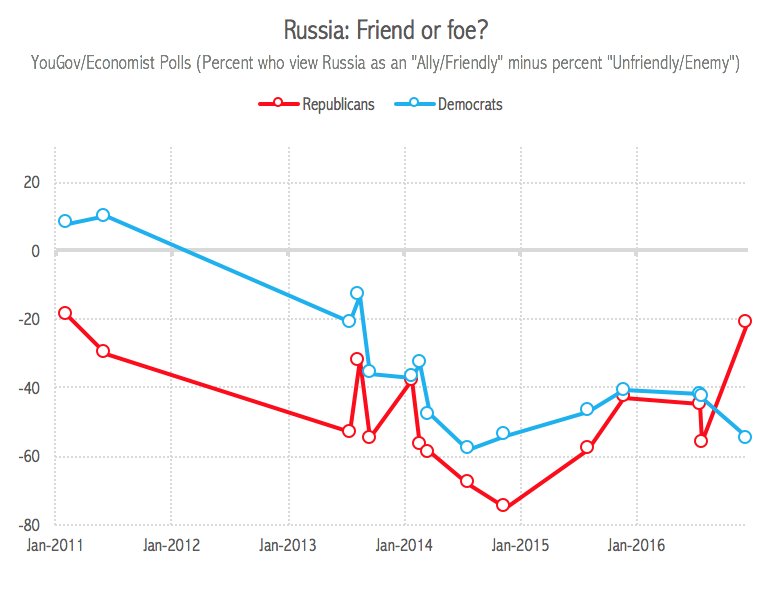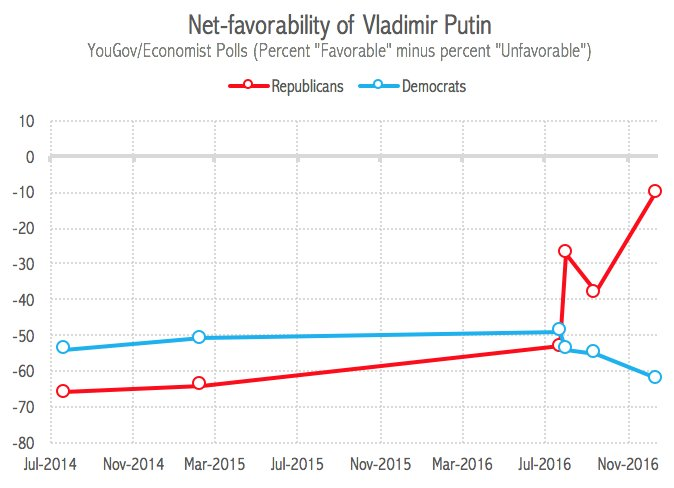The recent data published by The Economist/YouGov (PDF, ##26, 28) taken on December 10-13 2016, clearly indicate a dramatic change on Republican Party members' view on Russia and Putin:
The surveys show the change was rapid (occurred over the course of just a month or two) and significant (+45% points in favor).
What factor made such a drastic change?
I think I perfectly understand why Russians may wanted Trump to take the power, but this apparently does not let me understand the speed and amount of the mentioned changes within the Republican Party itself.
Historically, the Rep. party was much more biased against the totalitarian regimes. The Republicans have consistently supported people like Ronald Reagan and John McCain, and the Republican Party has put all their effort to the elimination of the Russian "USSR" project back in 1980's. Now the same people do the very opposite regarding the Russian "Federation".
Did the Russians do something incredibly good in favor of the Republican party of the United States?
Can the YouGov survey data be somehow faked/spoiled?
Is there another explanation for this phenomenon?

